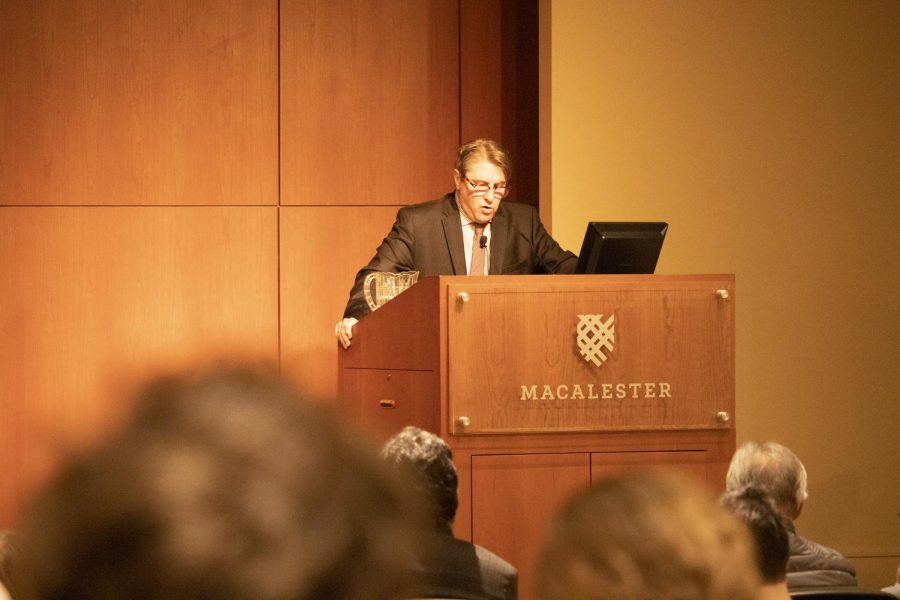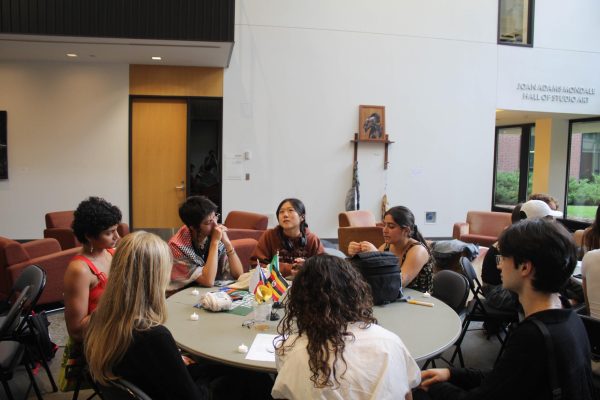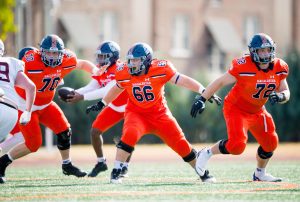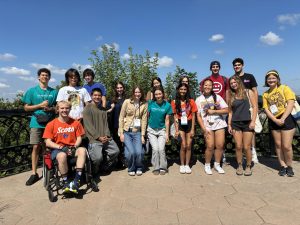Professor Patrick J. Deneen talks localism, epistocracy at Mitau Lecture
Dr. Patrick J. Deneen speaks at the 39th annual G. Theodore Mitau Lecture. Photo by Shosuke Noma ’23.
March 5, 2020
On Thursday, Feb. 23, Macalester welcomed Dr. Patrick J. Deneen to campus as the speaker for the thirty-ninth annual G. Theodore Mitau Lecture — the political science department’s marquee yearly lecture.
Deneen’s talk, titled “The Case for Illiberal Democracy,” brought in a sizable crowd of students, faculty and members of the Macalester-Groveland community to the John B. Davis Lecture Hall. A reception in the Atrium followed the event, and Deneen participated in a lunchtime meeting with students the next day.
Deneen’s talk centered around an understanding of liberal democracy as a theory that projects undemocratic practices and values. He connected liberalism to epistocracy, where only those deemed competent, worthy and knowledgeable gain political power.
With democracies around the world in varying states of decay, Deneen called for increased participation in local politics, where political engagement is meaningful and easily accessible to all individuals.
Deneen pointed out that there is evidence to suggest that political scientists have long flirted with the idea of granting political power to an elite or expert group perceived as more competent and more worthy as a means to prevent meaningful political participation for ‘ordinary people.’
“What we should notice is that [these ideas are] actually becoming more in fashion today,” Deneen said. “More and more political scientists and thinkers are beginning to wonder, ‘is this democracy thing really working out?’”
“Madison and Hamilton argued in the Federalist Papers [that] we should leave politics to those who are especially equipped to engage in politics… [those who] Hamilton called ‘fit characters,’” he continued.
Towards the end of his talk, Deneen suggested localism as a promising alternative to the undemocratic nature of liberal democracy.
“Our political muscles have atrophied,” Deneen said. “We have turned our democracy into a spectator sport. The only town halls we know of appear on television. … You can make a massive difference in a smaller place. The participation that’s possible in these smaller venues fortifies the basic egalitarianism at the heart of a true democracy.”
Political science professor Adrienne Christiansen found parts of Deenan’s argument unsettling.
“What was so discomforting to me about Deneen’s argument is my own place of believing that the highly educated should be the only persons who ought to be considered for cabinet secretaries, for attorney general, for head of the FBI or the intelligence agencies, et cetera,” Christiansen said.
At the same time, she appreciated Deenen’s solution of localism and described it as a source of hope.
“The focus on small government… I resonate with that,” she said. “God knows I don’t feel like I can do very much to affect the outcome of national level politics.”
Maya Sobchuk ’22 appreciated Deenan’s nonpartisan perspective.
“I like that he disagreed with both Republicans and Democrats,” Sobchuk said. “This problem that he’s talking about is usually kind of seen as a partisan issue when it’s not. We tend to see things [as] very polarized in this country.”
But praise for Deneen’s lecture was not by any means universal.
For instance, though he said that he understood the appeal of 1830s localist politics, Alex Hamann ’22 felt that Deneen overlooked the historic exclusivity of democracy in America.
“I think it was interesting how he harkened back to the 1830s as a pinnacle time of democracy in the United States,” Hamann said. “It is much easier for democracy to function when women and minorities are literally not allowed to vote. The merits of democracy in the 1830s are [only] as solid as the decades of ‘democracy’ were.”
Political science professor Andrew Latham shared this critique.
“African Americans didn’t experience 1830 as a glorious, wonderful time,” Latham said. “Women didn’t experience it that way. Native Americans didn’t experience it that way, and the emerging working class didn’t experience that as a wonderful golden age.”
Latham said his students left the talk “perplexed, but in a good way.” He believed that Deenen brought nuance and critical thinking to the table and prompted some productive pushback.
Christiansen, too, found the talk both informative and puzzling.
“I learned a whole lot about political theory that I didn’t previously know,” Christiansen said. “He pricked my conscience. And maybe that was his point.”













